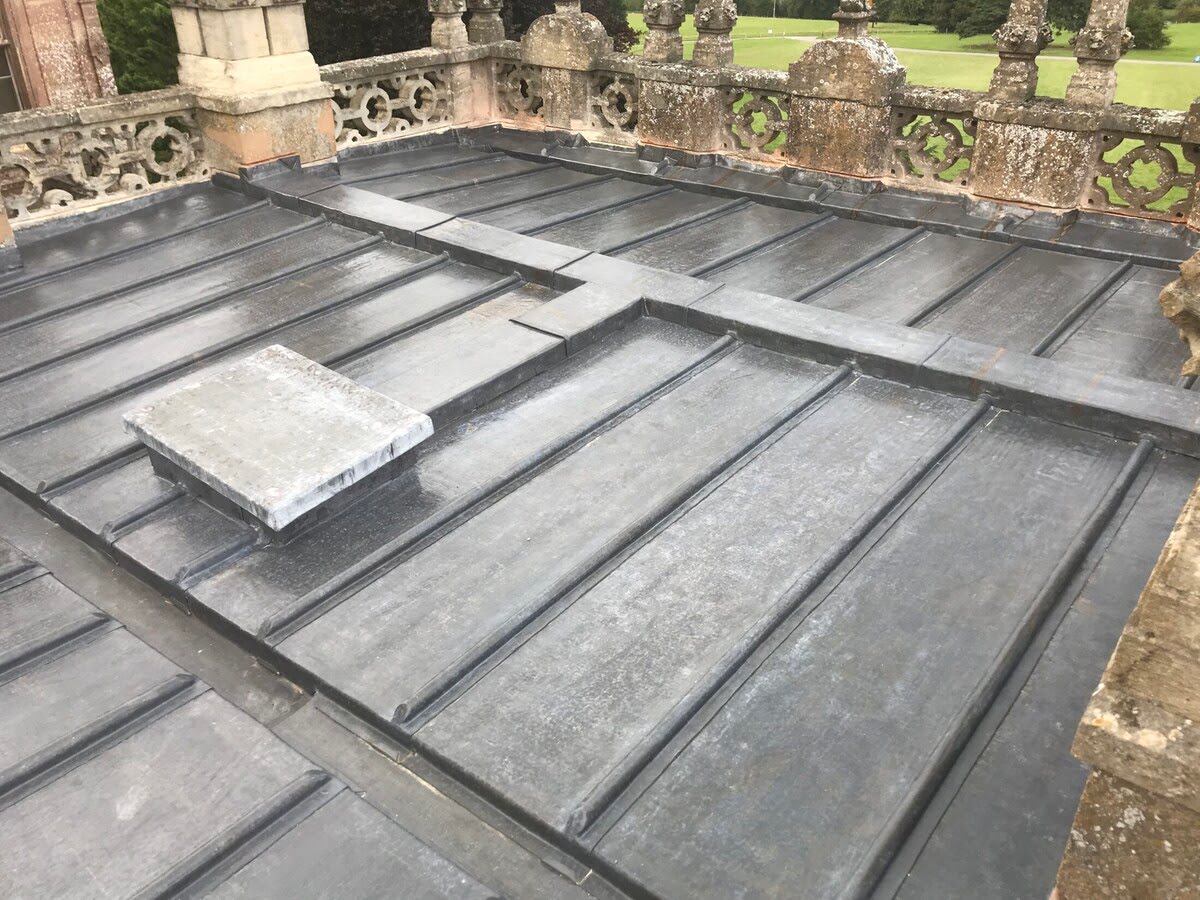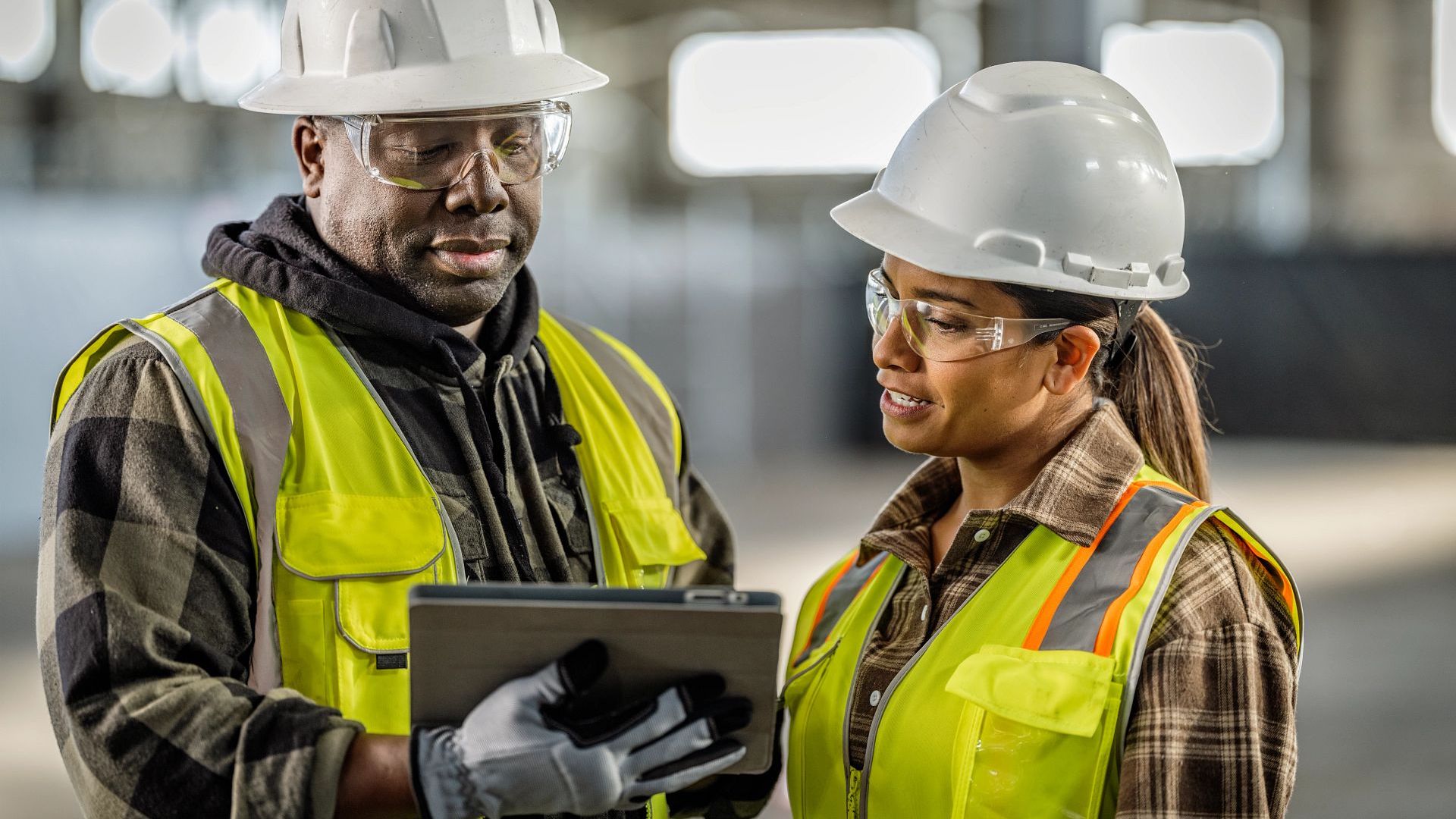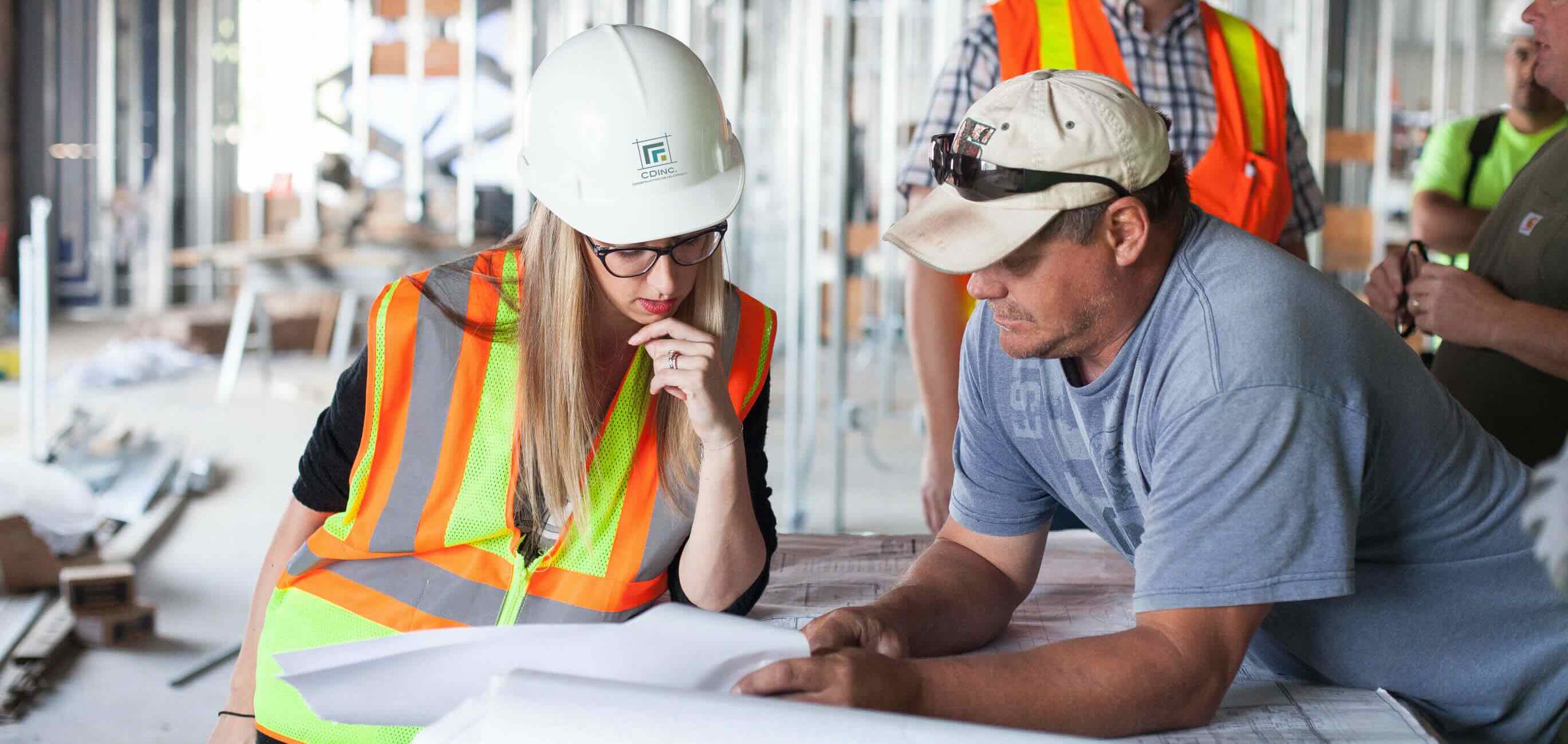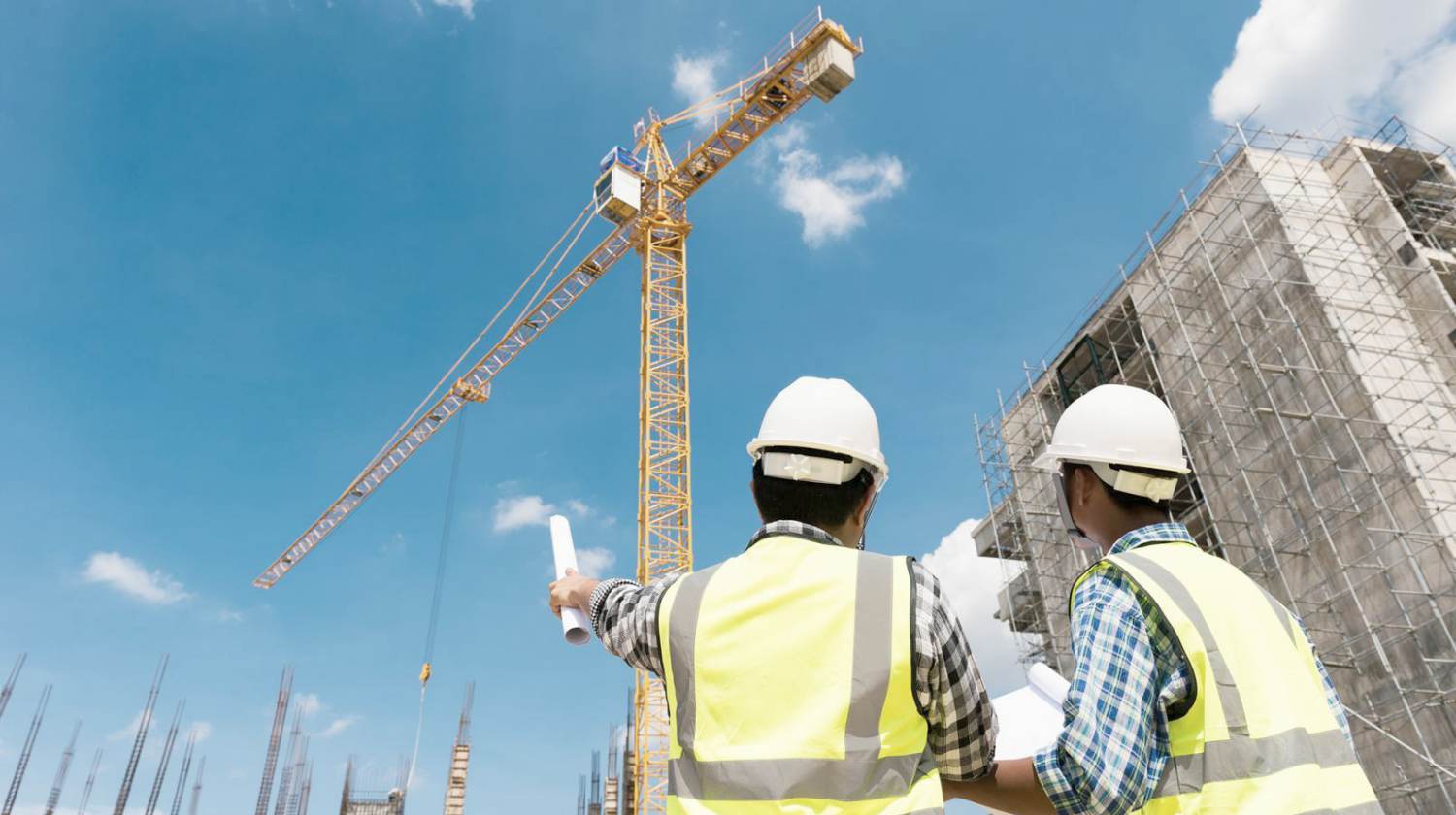Home>diy>Building & Construction>What Do Lead Construction Engineers Do


Building & Construction
What Do Lead Construction Engineers Do
Modified: January 23, 2024
Lead construction engineers play a crucial role in building construction, overseeing and managing various stages of the construction process. Find out more about their responsibilities and job duties.
(Many of the links in this article redirect to a specific reviewed product. Your purchase of these products through affiliate links helps to generate commission for Storables.com, at no extra cost. Learn more)
Introduction
Construction projects are complex and require the expertise of various professionals to ensure their successful completion. One crucial role in the construction industry is that of a lead construction engineer. These skilled individuals play a vital role in overseeing and managing construction projects from start to finish.
A lead construction engineer is responsible for supervising and coordinating the various aspects of a construction project, ensuring that it is completed on time, within budget, and according to the required quality standards. They work closely with architects, contractors, and other professionals to ensure that every aspect of the construction process runs smoothly.
In this article, we will explore the role and responsibilities of a lead construction engineer, highlighting the essential skills and knowledge they bring to the table. We will delve into the intricacies of their work, shedding light on their critical contributions to the success of construction projects.
So, let’s dive into the world of lead construction engineers and find out what they do!
Key Takeaways:
- Lead construction engineers oversee and manage all aspects of construction projects, from project planning to quality control, ensuring successful and efficient project completion.
- Their multifaceted role includes project management, team leadership, technical expertise, communication, and collaboration, quality control, safety and compliance, and budgeting and cost control.
Read more: What Does A Construction Engineer Do?
Role and Responsibilities
A lead construction engineer is a key figure in the construction industry, taking on multiple responsibilities to ensure the smooth execution of a construction project. Let’s take a closer look at their role:
- Managing Construction Projects: The primary responsibility of a lead construction engineer is to oversee and manage construction projects from beginning to end. This involves creating a project plan, setting project goals and objectives, and developing a timeline for completion.
- Coordinating with Stakeholders: Lead construction engineers work closely with various stakeholders, including architects, contractors, and subcontractors. They effectively communicate project requirements and ensure that everyone involved in the construction process is working towards the same goal.
- Ensuring Quality Standards: Lead construction engineers are responsible for ensuring that all construction work meets the required quality standards. They monitor the progress of the project, conduct regular inspections, and address any issues that may arise during the construction process.
- Managing Resources: It is the responsibility of a lead construction engineer to manage and allocate resources efficiently. This includes overseeing the procurement of materials, equipment, and labor, as well as monitoring resource usage to avoid cost overruns.
- Resolving Issues: Construction projects often face unexpected challenges and issues. Lead construction engineers must be adept at problem-solving, quickly identifying and resolving any issues that may arise during the construction process.
- Monitoring Compliance: Lead construction engineers ensure that all construction activities comply with relevant regulations, codes, and safety standards. They are responsible for creating and implementing safety protocols and conducting regular safety inspections on-site.
- Reviewing Plans and Designs: Lead construction engineers review architectural plans and engineering designs to ensure feasibility and practicality. They identify any potential issues or conflicts and work with the design team to find suitable solutions.
These are just a few of the key responsibilities that lead construction engineers undertake. Their role extends beyond these duties, as they are responsible for the overall success and completion of a construction project.
Now that we have explored their role and responsibilities, let’s move on to the specific skills and expertise required to excel in this profession.
Project Management
Project management is a fundamental aspect of a lead construction engineer’s role. They are responsible for overseeing the entire construction process, from initial planning to project completion. Here are some key components of project management in construction:
Creating Project Plans: A lead construction engineer develops comprehensive project plans that outline the scope, objectives, and deliverables of the construction project. They define the project timeline and identify the necessary resources, ensuring that the project progresses efficiently.
Setting Project Goals and Objectives: Lead construction engineers work with stakeholders to define clear goals and objectives for the construction project. These goals help guide the project team and provide a benchmark for measuring success.
Managing Project Budget: A crucial aspect of project management is cost control. Lead construction engineers collaborate with the project team to develop and manage the project budget. They monitor expenses, identify cost-saving opportunities, and ensure that the project stays within budget constraints.
Resource Allocation: Efficiently allocating resources is essential for project success. Lead construction engineers coordinate with suppliers, contractors, and laborers to ensure that resources, such as materials, equipment, and manpower, are available when needed. They also monitor resource usage to avoid delays or overspending.
Risk Assessment and Mitigation: Construction projects come with inherent risks. Lead construction engineers identify potential risks and develop strategies to mitigate them. They create contingency plans to address unforeseen circumstances and keep the project on track.
Progress Tracking: Tracking and monitoring project progress is crucial to ensure timely completion. Lead construction engineers maintain regular communication with the project team, track milestones, and address any issues promptly. They ensure that the project is progressing according to the agreed timeline and quality standards.
Problem Solving: Construction projects often encounter unforeseen challenges. Lead construction engineers are skilled problem solvers, capable of quickly assessing situations, identifying solutions, and implementing corrective measures to keep the project moving forward smoothly.
Effective project management ensures that the construction project is completed within the set timeline, budget, and quality standards. Lead construction engineers play a vital role in coordinating all project stakeholders and ensuring that the project progresses smoothly from start to finish.
Now that we have explored the project management aspect, let’s move on to the next crucial skill: team leadership.
Team Leadership
Team leadership is a critical skill for lead construction engineers as they are responsible for managing and coordinating a diverse team of professionals involved in a construction project. Effective team leadership is essential in ensuring that the project runs smoothly and that the team members are motivated and working together towards a common goal. Here are some key aspects of team leadership in construction:
Building and Managing the Project Team: Lead construction engineers are responsible for assembling a skilled and efficient project team. They assess the required roles and skills, recruit team members, and assign tasks and responsibilities to each individual. They work closely with each team member, providing guidance and support throughout the project.
Effective Communication: Clear and effective communication is crucial in construction projects. Lead construction engineers facilitate open and transparent communication channels among team members, stakeholders, and clients. They ensure that everyone is well-informed about project objectives, timelines, and updates, minimizing misunderstandings and conflicts.
Team Motivation and Collaboration: Lead construction engineers understand the importance of a motivated and collaborative team. They foster a positive work environment, promote teamwork, and encourage open dialogue among team members. They recognize and reward team members for their contributions, boosting morale and creating a sense of shared ownership in the project’s success.
Conflict Resolution: Construction projects can encounter conflicts or disagreements among team members. Lead construction engineers have excellent interpersonal skills and are adept at resolving conflicts. They encourage open dialogue, mediate conflicts, and find mutually beneficial solutions, ensuring that the project progresses without any disruptions.
Coordinating and Delegating Tasks: Lead construction engineers are responsible for coordinating and delegating tasks among team members. They ensure that each team member understands their responsibilities and deadlines. They monitor progress, provide guidance and support, and make necessary adjustments to keep the project on track.
Providing Leadership and Direction: Lead construction engineers provide strong leadership throughout the project. They set a clear vision and direction, inspire team members to perform at their best, and make informed decisions to overcome obstacles. They lead by example and instill a sense of confidence and trust within the team.
Effective team leadership is crucial for the successful completion of construction projects. Lead construction engineers play a pivotal role in creating a cohesive and motivated team, fostering collaboration, and ensuring that all team members are working towards a common goal.
Now that we have explored team leadership, let’s move on to the next important skill: technical expertise in construction.
Technical Expertise
Technical expertise is a foundational skill for lead construction engineers as they are responsible for overseeing the technical aspects of a construction project. They need to have a deep understanding of construction principles, methods, and materials. Here are some key areas of technical expertise that lead construction engineers possess:
Construction Methods and Techniques: Lead construction engineers are well-versed in various construction methods and techniques. They have a thorough understanding of how different construction processes work, including foundation work, structural framing, electrical and plumbing installations, and finishing work. They stay updated with the latest industry practices and advancements.
Blueprint Reading and Interpretation: Reading and interpreting architectural and engineering blueprints is a crucial skill for lead construction engineers. They have the ability to understand complex construction drawings, identify specifications and dimensions, and translate them into actionable tasks for the project team.
Building Codes and Regulations: Lead construction engineers have in-depth knowledge of building codes and regulations. They ensure that the construction project complies with local, state, and federal regulations regarding safety, structural integrity, accessibility, and environmental impact. They stay up to date with any changes or updates in building codes and ensure that the project meets all necessary legal requirements.
Materials and Equipment: Lead construction engineers have a strong understanding of construction materials and their properties. They are knowledgeable about the strengths, limitations, and appropriate applications of different building materials. They also have expertise in selecting and sourcing construction equipment needed for the project.
Structural Analysis: Lead construction engineers are familiar with structural analysis techniques. They analyze the structural integrity of buildings, identify potential weaknesses or risks, and make recommendations for reinforcement or modifications as necessary. They collaborate with structural engineers and architects to ensure that the construction meets the necessary safety standards and design specifications.
Technological Skills: Lead construction engineers stay updated with the latest construction technologies and software tools. They are proficient in using computer-aided design (CAD) software for drafting and modeling, project management tools for scheduling and tracking, and other construction-specific software. They leverage these tools to streamline project workflows, improve efficiency, and enhance communication among project stakeholders.
Having strong technical expertise enables lead construction engineers to make informed decisions, effectively communicate with professionals across different disciplines, and ensure that the construction project is executed with precision and adherence to industry standards.
Now that we have explored technical expertise, let’s move on to the next crucial skill: communication and collaboration.
Lead construction engineers are responsible for overseeing construction projects, managing teams, and ensuring that projects are completed on time and within budget. They also play a key role in coordinating with architects, clients, and subcontractors to ensure the successful execution of the project.
Read more: What Do Project Engineers Do In Construction
Communication and Collaboration
Effective communication and collaboration are vital skills for lead construction engineers as they work closely with multiple stakeholders throughout the construction project. Clear communication and strong collaboration are essential for ensuring that everyone is on the same page and working towards a common goal. Here are key aspects of communication and collaboration in construction:
Clear and Concise Communication: Lead construction engineers excel in conveying information in a clear and concise manner. They effectively communicate project objectives, timelines, and expectations to all stakeholders, including architects, contractors, suppliers, and team members. They use various communication methods, such as meetings, emails, and project reports, to ensure that everyone understands their roles and responsibilities.
Active Listening: Lead construction engineers are skilled at active listening, which involves paying attention to the perspectives and concerns of others. They listen carefully to the ideas and suggestions of the project team, stakeholders, and clients, and incorporate valuable input into decision-making processes. By actively listening, they foster trust, collaboration, and open dialogue among all parties involved.
Collaboration with Stakeholders: Lead construction engineers collaborate closely with various stakeholders, including architects, engineers, subcontractors, and clients. They share information, exchange ideas, and work together to overcome challenges and find solutions. They promote a collaborative and inclusive environment where everyone’s expertise and input are valued.
Conflict Resolution: Construction projects can encounter conflicts and disagreements. Lead construction engineers are skilled in managing conflicts and finding resolution. They employ effective mediation techniques, promote open communication, and strive to find mutually beneficial solutions that align with project objectives.
Adapting Communication Styles: Lead construction engineers are adept at adapting their communication styles to different stakeholders. They understand that effective communication requires tailoring their approach based on the needs and preferences of different individuals and teams. They adjust their communication style to ensure that information is conveyed clearly and understood by all parties involved.
Building and Maintaining Relationships: Lead construction engineers understand the importance of building and maintaining positive relationships with stakeholders. They establish and nurture professional relationships based on trust and respect. By fostering strong relationships, they enhance collaboration, facilitate effective communication, and ensure a smooth project execution.
Documentation and Reporting: Lead construction engineers are proficient in documenting and reporting project progress, issues, and milestones. They prepare regular project reports that provide detailed updates to stakeholders. These reports help in assessing project performance, tracking budgets, and documenting any changes or delays.
Effective communication and collaboration are crucial for the successful completion of construction projects. Lead construction engineers excel in these skills, ensuring that all stakeholders are well-informed, aligned, and actively involved throughout the construction process.
Now that we have explored communication and collaboration, let’s move on to another important aspect of a lead construction engineer’s role: quality control and assurance.
Quality Control and Assurance
Quality control and assurance are integral aspects of a lead construction engineer’s role. They are responsible for ensuring that the construction project meets the required quality standards and specifications. Here are key components of quality control and assurance in construction:
Establishing Quality Standards: Lead construction engineers are responsible for defining and establishing the quality standards for the construction project. They work closely with the project team and stakeholders to set clear expectations and guidelines to ensure that the final outcome meets the desired level of quality.
Inspections and Testing: Lead construction engineers conduct regular inspections and testing throughout the construction process. They perform quality checks on materials, equipment, workmanship, and installations to ensure that they meet the established standards. They collaborate with quality control technicians to evaluate results and address any non-conformities.
Corrective Actions: When quality issues arise, lead construction engineers take immediate action to address them. They identify the root cause of the problem, develop appropriate corrective measures, and implement necessary changes to ensure that the project stays on track and meets the required quality standards.
Documentation and Reporting: Lead construction engineers maintain detailed records of all quality control activities. They document inspections, testing results, non-conformities, and corrective actions taken. These records serve as a valuable resource for quality assurance and for future reference regarding project performance and compliance.
Supplier and Contractor Evaluations: Lead construction engineers assess the performance of suppliers and contractors to ensure that they meet the required quality standards. They monitor the quality of materials and equipment delivered, as well as the workmanship of contracted services. They collaborate with procurement teams to ensure that suppliers and contractors are selected based on their ability to deliver quality products and services.
Continuous Improvement: Lead construction engineers are committed to continuous improvement in quality control and assurance processes. They seek opportunities to enhance construction methods, streamline workflows, and implement best practices. They stay informed about industry advancements and proactively incorporate innovative techniques and technologies that can improve the overall quality of the project.
Client Satisfaction: Lead construction engineers prioritize client satisfaction by ensuring that the final product meets or exceeds their expectations. They maintain open lines of communication with clients, address their concerns, and keep them updated on the progress of the project. They strive to deliver a high-quality construction project that aligns with the client’s vision and requirements.
Quality control and assurance are essential to deliver a successful construction project. Lead construction engineers play a critical role in upholding the highest standards of quality throughout the construction process, ensuring that the final result is of the utmost quality and meets the expectations of all stakeholders.
Now that we have explored quality control and assurance, let’s move on to the next crucial aspect of a lead construction engineer’s role: safety and compliance.
Safety and Compliance
Safety and compliance are paramount in the construction industry, and lead construction engineers play a crucial role in ensuring that construction projects adhere to safety regulations and legal requirements. Here are key components of safety and compliance in construction:
Creating and Implementing Safety Protocols: Lead construction engineers are responsible for establishing and implementing comprehensive safety protocols on construction sites. They develop safety procedures, conduct safety training, and promote a safety-first culture among the project team and subcontractors. They ensure that all workers are aware of potential hazards and are equipped with the necessary safety equipment and personal protective gear.
Maintaining a Safe Work Environment: Lead construction engineers actively oversee and enforce safety measures on construction sites. They conduct regular safety inspections to identify potential hazards or unsafe conditions. They take prompt action to address any safety concerns, such as securing premises, implementing safety barriers, and correcting risky behaviors. They collaborate with the project team to continuously improve safety practices and minimize risks.
Ensuring Compliance with Safety Regulations: Lead construction engineers stay updated with safety regulations and ensure that construction activities comply with legal requirements. They monitor and enforce safety standards and guidelines set by regulatory bodies. They obtain necessary permits and licenses, conduct safety audits, and ensure that construction activities align with environmental and occupational health and safety regulations.
Risk Assessments and Hazard Mitigation: Lead construction engineers proactively identify potential risks and hazards in construction projects. They conduct thorough risk assessments, taking into account factors such as site conditions, weather, and equipment usage. They develop risk mitigation strategies and recommend techniques to minimize risks, ensuring the safety of workers and the surrounding environment.
Emergency Preparedness: Lead construction engineers develop emergency response plans and protocols to address unforeseen events and emergencies. They ensure that all workers are aware of emergency procedures and evacuation routes. They collaborate with local authorities and emergency services to create a coordinated response plan in case of emergencies.
Collaboration with Safety Experts: Lead construction engineers collaborate with safety professionals, consultants, and experts to stay updated with the latest safety practices. They seek advice on complex safety matters and consult with specialists for specific safety concerns. They incorporate new safety technologies and best practices into construction projects, continually improving safety performance.
Promoting a Culture of Safety: Lead construction engineers play a pivotal role in fostering a safety-conscious culture among the project team. They lead by example and prioritize safety in all aspects of the construction project. They actively encourage open communication about safety concerns, reward safe behaviors, and hold regular safety meetings to address safety topics and share best practices.
Ensuring safety and compliance is not only a legal responsibility but also a moral obligation in the construction industry. Lead construction engineers are at the forefront of promoting a safe and compliant work environment, protecting the well-being of workers, and preventing accidents or incidents that could disrupt the construction project.
Now that we have explored safety and compliance, let’s move on to the next crucial aspect of a lead construction engineer’s role: budgeting and cost control.
Budgeting and Cost Control
Budgeting and cost control are essential skills for lead construction engineers as they are responsible for managing project finances and ensuring that construction projects are completed within budgetary constraints. Here are key components of budgeting and cost control in construction:
Estimating Project Costs: Lead construction engineers work closely with project stakeholders to estimate the overall project costs. They consider factors such as materials, labor, equipment, permits, and subcontractor expenses to develop accurate cost estimates. They create detailed cost breakdowns and collaborate with quantity surveyors and estimators to ensure comprehensive cost estimates.
Developing and Monitoring Project Budget: Lead construction engineers play a vital role in developing and monitoring project budgets. They collaborate with project stakeholders to establish a realistic budget that aligns with the project scope and goals. They track and control project expenses throughout the construction process, ensuring that costs are within budgetary limits.
Managing Resource Allocation: Lead construction engineers manage the allocation of resources, including materials, labor, and equipment. They ensure that resources are efficiently utilized and aligned with the project budget. They monitor resource utilization, identify cost-saving opportunities, and make adjustments to optimize resource allocation.
Identifying Cost-saving Opportunities: Lead construction engineers are constantly on the lookout for cost-saving opportunities without compromising the quality of the construction project. They evaluate alternative materials, methods, and suppliers to find the most cost-effective options. They negotiate contracts and prices with vendors and subcontractors to maximize value for the project.
Regular Cost Reporting: Lead construction engineers provide regular cost reports to project stakeholders, detailing the financial status of the construction project. They track expenses, compare actual costs against the budget, and identify any deviations or variances. They provide transparent and accurate cost reports to facilitate informed decision-making and proactive cost control measures.
Value Engineering: Lead construction engineers employ value engineering techniques to identify ways to optimize project costs while maintaining or enhancing project quality. They analyze project specifications, designs, and construction methods to identify areas where cost efficiencies can be achieved. They propose value engineering ideas that offer cost savings without compromising the project’s functionality or performance.
Change Management: Construction projects often experience changes that impact the project budget. Lead construction engineers manage change requests and variations, assessing their impact on project costs. They evaluate the feasibility, cost implications, and potential risks associated with changes, and work with project stakeholders to make informed decisions regarding changes while minimizing cost overruns.
Budgeting and cost control are critical for the successful completion of construction projects. Lead construction engineers rigorously monitor project finances, optimize resource allocation, and identify cost-saving opportunities to ensure that projects are delivered within the set budget constraints.
Now that we have explored budgeting and cost control, let’s conclude our discussion on the role and responsibilities of a lead construction engineer.
Read more: What Do Civil Engineers Do In Construction
Conclusion
Lead construction engineers play a pivotal role in the successful completion of construction projects. Their expertise and leadership skills are instrumental in overseeing and managing all aspects of a construction project. Throughout this article, we have explored the multifaceted role and responsibilities of a lead construction engineer. From project management and team leadership to technical expertise, communication and collaboration, quality control and assurance, safety and compliance, and budgeting and cost control, lead construction engineers bring a diverse skill set to the table.
As project managers, lead construction engineers ensure that construction projects are executed efficiently and effectively. They coordinate with stakeholders, set project goals and objectives, and develop comprehensive project plans. Their technical expertise allows them to navigate complex construction processes and materials, ensuring that projects meet the highest quality standards and adhere to relevant regulations.
Lead construction engineers excel in communication and collaboration, fostering a positive work environment and promoting teamwork among project stakeholders. They prioritize safety and compliance, establishing safety protocols, conducting regular inspections, and ensuring that all construction activities comply with legal requirements.
Efficient budgeting and cost control are also key skills of lead construction engineers. They estimate project costs, develop and monitor budgets, and identify cost-saving opportunities without compromising project quality.
In conclusion, lead construction engineers bring a comprehensive understanding of the construction industry, along with technical expertise and leadership skills. They are responsible for ensuring the successful completion of construction projects while adhering to safety regulations, quality standards, and budgetary constraints.
By effectively managing projects, leading teams, and ensuring compliance, lead construction engineers contribute to the growth and success of the construction industry. They play a vital role in shaping the built environment, providing safe and sustainable structures that benefit society as a whole.
So, the next time you witness a construction project taking shape, remember the significant contributions of the lead construction engineer who played a crucial role in making it a reality.
Frequently Asked Questions about What Do Lead Construction Engineers Do
Was this page helpful?
At Storables.com, we guarantee accurate and reliable information. Our content, validated by Expert Board Contributors, is crafted following stringent Editorial Policies. We're committed to providing you with well-researched, expert-backed insights for all your informational needs.














0 thoughts on “What Do Lead Construction Engineers Do”